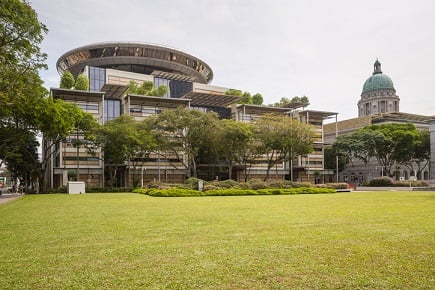Dependents of an employee who died in a workplace accident can claim work injury compensation even without first being appointed executors or administrators of his estate, Singapore’s high court ruled.
The court ruled in favour of Tan Mui Tiang and her four children, who are claiming $147,000 for the death of her husband, maintenance worker Low Ngak Boon, who had a heart attack at the Innotel Hotel in August 2014.
Low complained of breathing difficulties to a co-worker and was rushed to hospital. He eventually died there.
The claim was lodged with the Ministry of Manpower under the Work Injury Compensation Act, reported The Straits Times.
But Low’s employer, Club Sonata, and insurer, China Taiping Insurance, disputed the claim and insisted the death was not an accident.
They applied to the Assistant Commissioner for Labour to terminate the proceedings, saying that the widow and her children did not have legal standing to make the claim. The family, they said, had not gone to court to obtain letters of administration -- a document that authorises a person to administer the assets of a person who died without a will.
In arguing their case, the employer and the insurer invoked two previous Court of Appeals decisions, which said:
- A mother of an accident victim did not have the capacity to settle a negligence suit on his behalf because she had not obtained the letters of administration; and
- Only a person appointed by the court, under the Mental Capacity Act, to act for a mentally incapacitated worker can claim work injury compensation on his behalf.
The application failed and the insurer and the employer brought the matter to the high court.
On Tuesday, January 9, Justice George Wei threw out the appeal, saying that the case at hand was different from the two cases cited.
The first was an estate's claim for damages in a negligence suit brought by the victim. The second had to do with representation of a mentally incapacitated worker.
The high court decision now means the MOM hearing on Tan’s claim will continue, according to their lawyer Anil Lalwani. He said however that should letters of administration be required, the case could still be stalled and the dependents can be deterred from making claims because the letters cost thousands of dollars.
Related stories:
Firm fined $190K over workplace death
Employers must report work accidents: MOM

